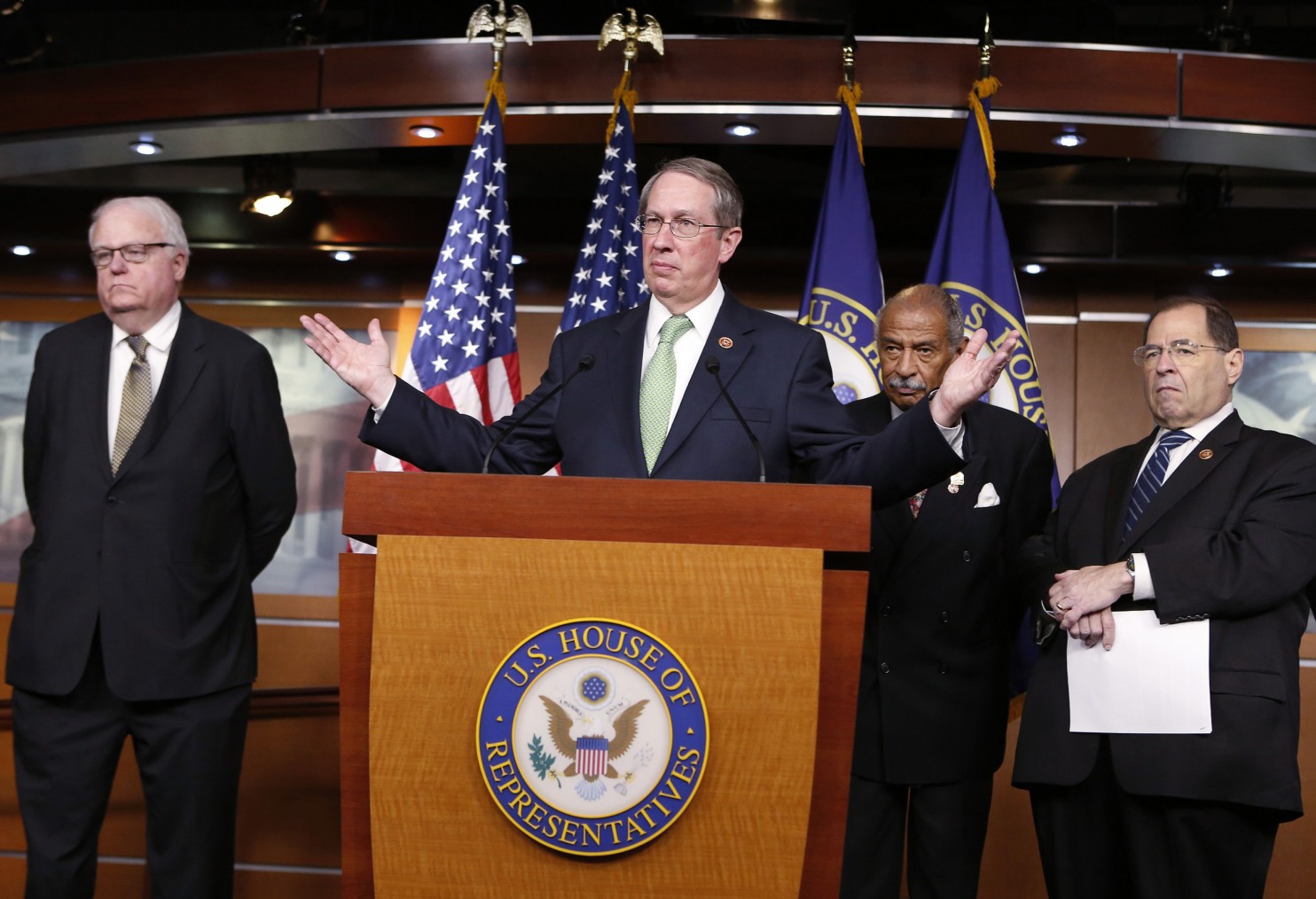NSA will do away with collecting American phone metadata
The US House of Representatives approved a bill that would end the collection of American telephone metadata by the NSA.

Chairman of the Legal Committee of the US House of Representatives Bob Gudlat speaks at a press conference on the US Freedom Law on Thursday [May 22 - approx. trans.].
On Thursday [ May 22 - approx. transl.] The US House of Representatives, with a significant margin in voting, approved a bill that would put an end to the American National Security Agency's mass tapping of American American telephone conversations. The audition was conducted in the framework of the counter-terrorism program, which caused the Americans concern about their private life after its existence was revealed last year.
')
The Liberty Act (The USA Freedom Act), which at the very beginning looked like an impressive observation reform package proposed by civil rights activists and the Republican libertarians, was revised this week to meet the interests of intelligence and law enforcement agencies.
The amended bill lost the support of dozens of co-sponsors who were unhappy with the mitigation of reforms. But he gathered the votes of the members of the intelligence committee and those who were against the original version, and was adopted, gaining 303 votes against 121.
“Let me clarify, I would like this law to do more,” says Republican Party member James Sensenbrenner, the main sponsor of the bill. "To colleagues who are unhappy with the amendments, I want to say that they are right and I agree with them ... But this law still deserves support."
The attention of reform supporters is now focused on the Senate, where in June the legal committee will discuss the bill.
The vote of the House of Representatives seems to reflect the sentiment of the administration and many members of Congress that now, almost a year after exposing the program because of the disclosure of secret information by former NSA officer Edward Snowden, it is time to settle the differences and move on.
In January, President Obama demanded an end to the massive collection of telephone call data from the NSA. The program is not supposed to monitor the content of calls. A major breakthrough happened earlier this month, when leaders of the Legal Committee and the Intelligence Committee of the US House of Representatives reached an agreement on the bill, found a compromise that satisfied privacy advocates.
But in recent days, being under strong pressure from high-ranking intelligence officers, the leaders of the committees agreed with the changes. On Wednesday, the White House approved the bill, stating that it "guarantees intelligence and law enforcement officials sufficient authority to protect the nation and at the same time ensure adequate protection of the privacy of citizens."
The revised system of measures will make it impossible for the government to receive billions of detailed data about American calls from telephone companies, this can only be done on an individual court order. But privacy advocates say that this law still allows you to collect a huge amount of data, which, for example, comes from a single zip code.
"If we leave at least some ambiguity in the law, we will see that the intelligence community is able to drag a truck through this loophole," said Democratic Party spokesman Zoe Lofgren.
The chairman of the legal committee, Bob Goodlat (Bob Goodlatte), said: "This is a carefully drafted bipartisan bill," and this "once again proves that American freedom and security are not mutually exclusive concepts."
This law is “better than nothing and better than an alternative bill proposed by an intelligence committee,” said Kevin Bankston, political director of the Open Technology Institute of the New America Foundation. "But we still have a lot of cases in the Senate, we need to withdraw the changes that have softened the law."
The chairman of the Senate’s Legal Committee, Patrick Leahy, said he was disappointed that the new law had lost some of its “important reforms that contained the original version of the bill,” he also said that he would contribute to their restoration.
[Approx. translation: We will be glad to know your assessment of these activities and statements, friends!]
Source: https://habr.com/ru/post/229313/
All Articles